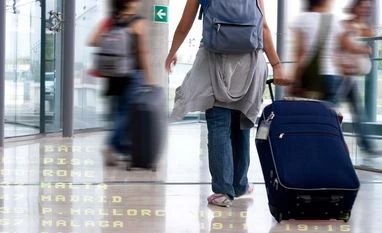Study permits to Indians in Canada plummet 86% after Nijjar killing row
The India-Canada row had begun after Canada Prime Minister Justin Trudeau, in September, had alleged India's role in the killing of the Khalistan terrorist Hardeep Singh Nijjar on Canadian soil
)
Canadian universities rely heavily on international students, who contribute $16.4 billion annually.
Listen to This Article
The impact of ongoing diplomatic tensions between India and Canada over the death of Khalistani terrorist Hardeep Singh Nijjar has spilt on to study permits for Indians in Canada, which dropped to 86 per cent since the row began. Data shows that a total of 14,910 Indians were granted study permits in Canada during the October-December quarter in 2023 compared to 108,940 during the previous August-September quarter.
The row had begun after Canadian Prime Minister Justin Trudeau, in September, had alleged India's role in the killing of the Khalistan leader on Canadian soil.
Canada's Immigration Minister Marc Miller, on the declining numbers, said it was unlikely to rebound soon. "Our relationship with India has really halved our ability to process a lot of applications from India," Miller said.
The development follows after the Narendra Modi government had asked Canada to pull out as many as 41 diplomats from New Delhi. This amounted to nearly two-thirds of the Canadian staff in India. Additionally, the row seems to have influenced the decision of several aspirants to seek to study in other countries, a spokeswoman for the minister said.
Indian largest group of international students in Canada
Canadian universities rely heavily on international students, who contribute $16.4 billion annually. Notably, Indian students formed the largest group of international students in Canada, with 41 per cent or 225,835 - of all permits going to them in 2022.
Also Read
What triggered the India-Canada row?
Trudeau's allegation linking Indian agents to the killing of Nijjar on June 18, attracted a sharp response from India, which labelled the move as "absurd" and "motivated."
The Canadian PM had asserted that the "credible allegations" on the incident had been shared with India, External Affairs Ministry spokesperson Arindam Bagchi had countered the statement, saying that "no specific information" has been received from Canada. The charges also led to a series of fallout with both sides expelling diplomats in a rare occurrence.
(With Reuters' inputs)
More From This Section
Don't miss the most important news and views of the day. Get them on our Telegram channel
First Published: Jan 18 2024 | 11:47 AM IST


